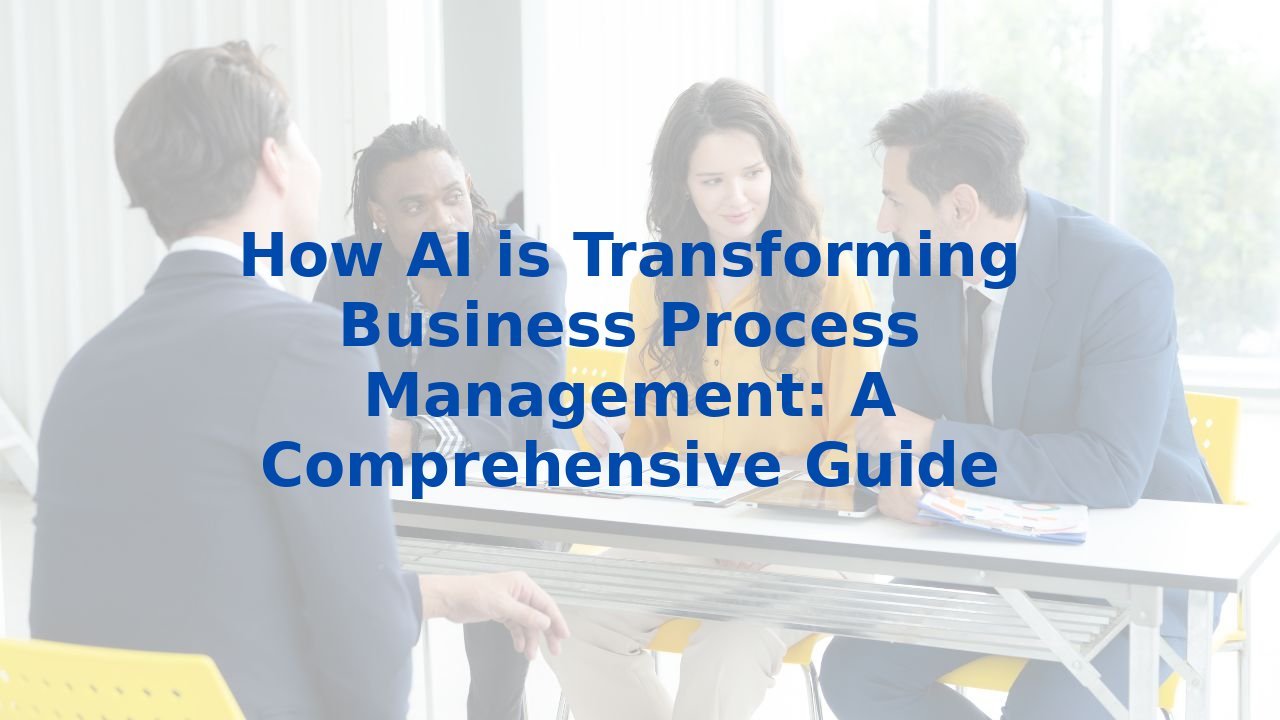How AI is Transforming Business Process Management: A Comprehensive Guide
The Transformative Impact of AI on Business Process Management
Business process management (BPM) has long served as a vital framework within organizations, aimed at enhancing efficiency and driving digital transformation. Today, the infusion of artificial intelligence (AI) has emerged as a powerful catalyst, revolutionizing BPM by automating, analyzing, and optimizing processes with a level of nuance and precision that was once unimaginable.
How AI is Revolutionizing BPM
The essence of AI's transformative power lies in its ability to leverage advanced capabilities such as machine learning, natural language processing, and deep learning. These technologies allow AI systems to analyze vast datasets, identify underlying patterns, and predict future outcomes in ways that humans historically could not achieve. The result? Organizations find themselves empowered to implement data-driven strategies that optimize every facet of their business processes.
Front-Office Processes
In the realm of front-office processes, AI is ushering in significant advancements in sales effectiveness, customer satisfaction, and employee engagement. For instance, when integrated into contact centers, AI not only enhances the customer interaction experience—by significantly reducing wait times and providing personalized recommendations—but also offers real-time sales assistance. This multi-pronged approach leads to an enriched customer experience while allowing agents to allocate their focus to more complex tasks that require human insight. The cumulative effect boosts overall operational efficiency and employee morale.
Process Mining
Process mining represents another pivotal area within BPM where AI's capabilities are proving indispensable. By identifying opportunities for process improvement, value creation, and cost reduction, AI accelerates this critical component of BPM. The advent of object-centric process mining further enhances fidelity in data analysis, enabling AI to represent real-time objects and events in processes. As a result, organizations can continuously assess expected delivery times and quickly respond to any potential delays, creating a proactive approach to operations that fosters agility.
Business Process Mapping and Analysis
In the context of business process mapping, AI's role has transitioned from addressing processes manually to automating process mapping altogether. This is especially evident in manufacturing, where real-time monitoring of production lines allows for immediate identification of bottlenecks. AI systems can recommend corrective actions for operators, which leads to increased production output and enhanced operational fluidity.
Similarly, AI accelerates business process analysis by automating essential tasks that once required the manual expertise of seasoned process analysts. Activities such as modeling, collaboration, and compliance become streamlined, elevating the speed and accuracy of insights derived. The result is a significant movement toward data-driven decision-making that empowers organizations to align efficiently with their strategic objectives.
Benefits of AI in BPM
The infusion of AI into BPM naturally revolves around a bouquet of impactful benefits:
- Efficiency Boost: By automating routine, repetitive tasks, AI liberates human talent to focus on strategic initiatives that drive value.
- Cost Reduction: Enhanced operational efficiency, paired with minimized manual labor and reduced errors, leads to significant cost savings.
- Better Decision-Making: AI enables access to timely, precise insights, allowing informed and agile business decisions.
- Improved Compliance: AI ensures a consistent approach to processes that aligns with industry standards, reducing the risk of penalties.
- Enhanced Customer Satisfaction: Personalized support and faster response times lead to stronger relationships and loyalty from customers.
Training Employees for AI
As organizations embrace the capabilities of AI within BPM, it becomes equally crucial to invest in employee training. Empowering staff with skills in data analysis, machine learning, and process optimization transforms not just the operational landscape but cultivates an environment of empowerment. By equipping employees to work alongside AI systems, organizations can harness the full potential of AI-driven automation, ensuring smoother implementations and sustained benefits.
Conclusion
The integration of AI into BPM stands as a critical pivot for organizations striving to enhance operational efficiency while reducing costs and improving customer interactions. By unlocking opportunities in process discovery, automation, and analysis, businesses can streamline their workflows, enrich decision-making capabilities, and build a more inclusive and fulfilling workplace atmosphere. As we stand on the cusp of a new era, investing in employee training is not merely optional but essential for reaping the maximal rewards AI has to offer. The journey is indeed exciting, and those who embrace it stand to thrive in an increasingly competitive landscape.



